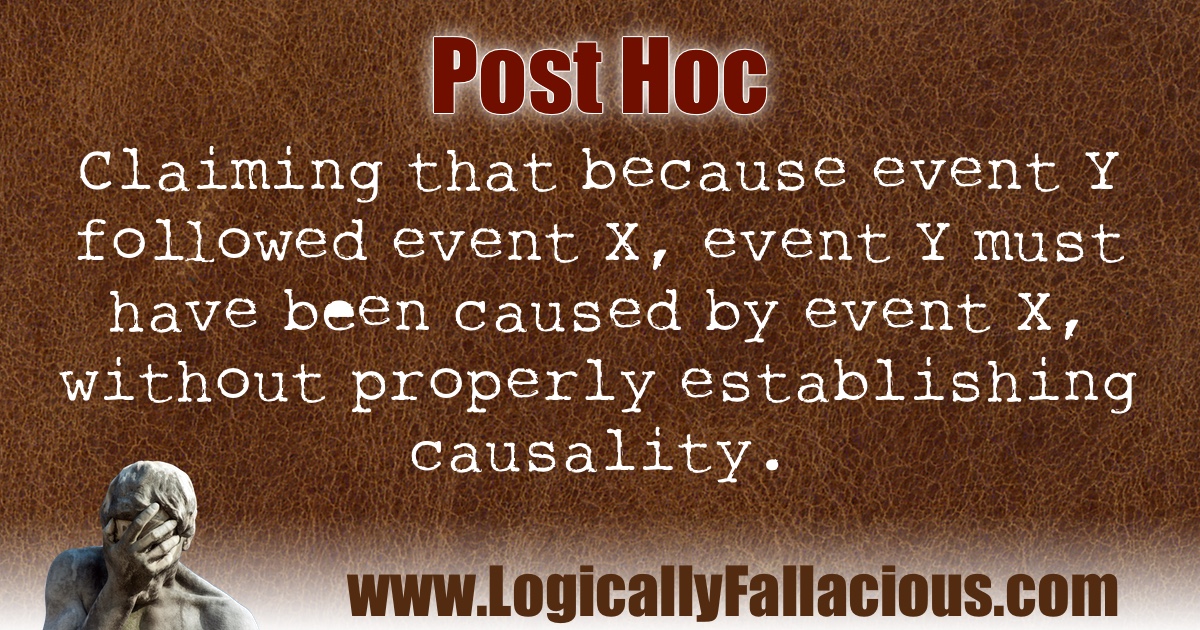post hoc ergo propter hoc
(also known as: after this, therefore because of this, post hoc rationalization)
Description: Claiming that because event Y followed event X, event Y must have been caused by event X, without properly establishing causality.
Logical Form:
Y occurred, then X occurred.
Therefore, Y caused X.
Example #1: Doug is convinced he has lucky underwear. One time when he forgot to put on his lucky underwear, he got a parking ticket. Doug concludes that because he forgot to wear his lucky underwear, he got the ticket. Doug doesn't wash his lucky underwear often. This part isn't relevant to the example, but it is disturbing nonetheless.
Explanation: Doug is not making any attempts to determine the most probabilistic causal factors for getting the parking ticket. Instead, largely because of the confirmation bias, he is making a claim of causality based on the order of events (first he forgot his lucky underwear, then he got the ticket.)
Example #2:
Tony: I bought a book on the law of attraction and two days later I won $30k in a lottery. I wasn’t a believer of the law of attraction before, but now I am!
Explanation: Although Tony bought the lottery ticket prior to buying the book, he believes that the act of wanting to win badly enough caused him to win the lottery, because first came the desire, then the win. The fact is, there is no evidence that his desire had any effect on the win whatsoever. To suggest this is the case, in addition to ad hoc reasoning, would be magical thinking since there is no naturalistic mechanism that could account for his desire resulting in his win.
Exception: If one claims that Y caused X by adding additional details that properly establish causality, this fallacy would not apply.
Fun Fact: There is some non-mystical truth to the law of attraction. That which you obsess over you are more likely to adjust your behaviors in a way that will help make your obsession a reality. For example, if you want to graduate college more than anything, you will most likely study harder, ask for extra help, and blow off fewer classes. No magic required.
